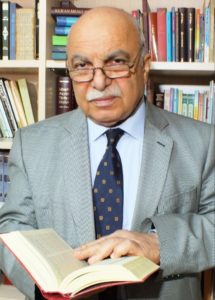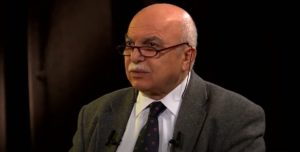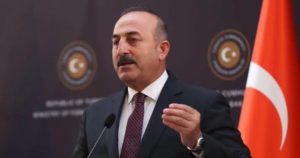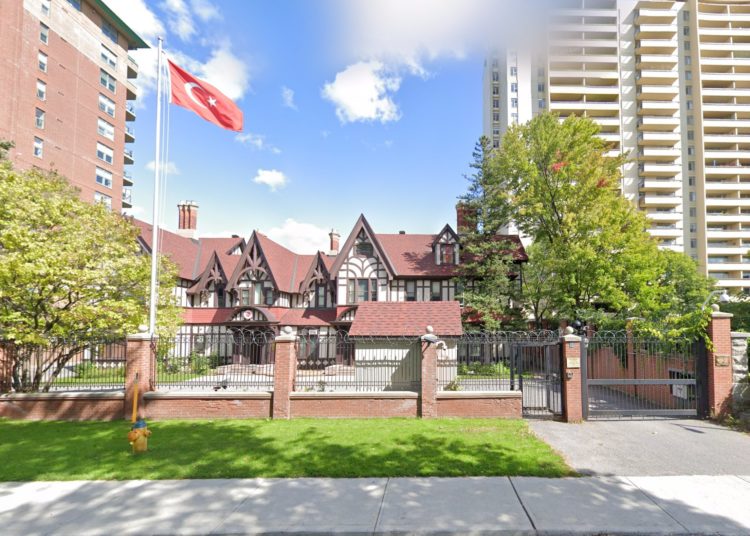Abdullah Bozkurt/Stockholm
The Turkish Embassy in Ottawa made preparations to seek the extradition of critics of the government of President Recep Tayyip Erdoğan and asked Turkish judicial officials to follow a template apparently designed to convince Canadian authorities, part of a global witch-hunt of opponents.
According to confidential government documents obtained by Nordic Monitor, the Turkish Embassy devised sample forms for extradition requests specifically designed for critics in Canada, saying they would help persuade Canadian officials if the forms were filled out according to the template.
On September 9, 2021 the Turkish Justice Ministry sent a translated version of the forms to the Ankara Chief Public Prosecutor’s Office, saying the official papers that would be submitted to Canada for the extradition of a critic named Suat Yıldırım must be completed in line with the sample forms attached.
The forms were apparently developed by the Turkish Embassy in Canada in order to persuade local authorities there to hand over Yıldırım, an 80-year-old Turkish professor who has authored numerous books on Islam and criticized Turkey’s Religious Affairs Directorate (Diyanet), the proselytizing arm of the political Islamist government led by Erdoğan. The academic is associated with Erdoğan’s most outspoken critic, Fethullah Gülen, a US resident, and his movement.
Clearly, the Turkish government is bent on filing dozens of frivolous extradition requests with Canadian authorities, and the general purpose forms were designed to help facilitate procedures that in the Turkish Embassy’s view would have a better chance of obtaining results against critics, including Turkish journalists, who found refuge in Canada following an unprecedented crackdown on opponents and dissidents in Turkey by the Erdoğan government in the last half decade.
The communiqué from Turkey’s Justice Ministry informing the local prosecutor to resubmit extradition papers for a critic living in Canada:
In a communiqué signed by Emrah Özkan of General Directorate of Foreign Relations in the Turkish Justice Ministry, the Ankara Chief Public Prosecutor’s Office was told that the paperwork prepared by the Ankara 4th High Criminal Court for the extradition of Yıldırım might not be enough to convince Canadian authorities. He asked them to prepare another request in line with the sample forms forwarded with his communiqué.
Özkan specifically mentioned that the language in the extradition forms must be reworked to help foreigners better understand Turkey’s request and not be overly complicated. He also emphasized that the evidence sheet must not include statements that offer a final judgement or opinions about the case, which is business as usual in Turkish prosecution and court cases. Secret witness testimony with no evidence to corroborate allegations are seen as adequate to indict, prosecute, try and convict government critics in Turkey.
In the case of Yıldırım, he has never been tried in a Turkish court and there is no verdict that found him quilty of any charges. He faces outstanding arrest warrants on fabricated charges.
A review of the Turkish government documents suggests that Turkish authorities were concerned that Canadian officials would find Turkey’s request in its initial form to be unsubstantiated and deny the Turkish government’s request for the handover of a critic. Therefore, with the help of the Turkish Embassy, Ankara came up with new sample forms to attract the attention of Canadian officials. Most likely the Turkish Embassy received help from specialists in Canada in drafting the sample forms.
Turkish authorities previously thought Yıldırım resided in Germany, and they submitted an extradition request for him with the German government. However Germany’s Foreign Ministry notified the Turkish Embassy in Berlin on December 2, 2020 that it would not even consider handing over exiled critics who face aggravated life sentences in Turkey and rejected the extradition request submitted by the Turkish Embassy in Berlin with no action.

Yıldırım faces multiple aggravated life sentences if he returns to Turkey, and his colleagues in the same case have already received sentences including aggravated life at the end of a sham trial held by the Ankara 4th High Criminal Court.
Aggravated life imprisonment, which replaced the death penalty in 2004, is the harshest sentence under Turkish penal law. It means severe restrictions on inmates, solitary confinement and no early parole, which violates the European Convention on Human Rights, to which Turkey is a party. The Erdoğan government often sentences its critics to aggravated life in order to sustain its intimidation campaign against opponents, critics and dissidents.
Referring to German Constitutional Court rulings in 2010 and 2011, the German foreign ministry underlined that “in such cases, the approval of the extradition request would not comply with the minimum standards of international law applicable in Germany and the basic principles of [German] constitutional law.”
After receiving the response from the Turkish Foreign Ministry, Turkey’s Justice Ministry informed the Ankara Chief Public Prosecutor’s Office on January 4, 2021 that efforts to secure the extradition of Yıldırım had failed.
In its communication to the Turkish Embassy, the German Foreign Ministry also said the authorities could not locate Yıldırım in German territory.
The Turkish government’s sample form seeking the extradition of critics from Canada:
A new extradition request for the professor, this time from Canada, was apparently made after Turkish spies located him residing in Canada. Nordic Monitor previously published a classified Turkish intelligence document that confirmed how Turkish spy agency MIT ran surveillance on critics in Canadian territory and sent a list of names to Turkey to facilitate criminal prosecution on bogus charges.
The forms prepared by Turkey included a General Legal Statement that listed murder charges as an example and stated that it has a maximum penalty of 16 years. No mention of aggravated life, the reason why German authorities denied the Turkish request, was mentioned in the sample form.
The second form designed for Canada included a Record of the Case, which also explained how the case file should be summarized in a way to make it credible and presented a fictitious murder case as an example for Turkish prosecutors to follow.
The case against Yıldırım in Ankara is not the only legal proceedings he faces. He is also being prosecuted for his criticism of the Diyanet.
Yıldırım, who has authored numerous books on Islam, wrote a damning rebuttal to a politically charged Diyanet report that smeared Erdoğan’s most outspoken critic, Gülen, and his movement. The retired professor’s article prompted an Erdoğan fan to file a complaint against him with the office of the mufti, a district-level Diyanet organization, in the city of Bergama in Turkey’s western Izmir province on September 5, 2017.
The complaint was sent to the prosecutor’s office by the mufti, resulting in a criminal investigation into Yıldırım. The public prosecutor in the district sent the file to Ankara, where another public prosecutor identified as Veysel Kamaz officially prepared an indictment of the professor on November 24, 2017, asking the court to convict him on multiple terrorism charges.

Yıldırım is a retired professor of Islamic jurisprudence and was considered one of the leading theologians in Turkey. When he refused to endorse the corrupt regime of President Erdoğan, he became the target of a vicious campaign and faced numerous charges in politically motivated criminal proceedings. He had to flee Turkey to escape persecution by the Erdoğan regime.
The Diyanet report for which he wrote a strong rebuttal tried to portray Gülen as a person who has nothing to do with Islam as part of the Erdoğan government’s efforts to discredit Muslim scholars who refrained from supporting Erdoğan’s divisive political Islamist ideology. The report was released on July 26, 2017, after Erdoğan issued an order for the preparation of such a report, according to former head of the Diyanet Mehmet Görmez, who revealed the order during an interview on July 14, 2017 on Diyanet TV.
The report is full of contradictions, slanders and lies, according to a panel of Islamic scholars who collectively issued a response. The rebuttal, which was issued by Wisdom Islamic Studies and Education (WISE) on January 15, 2018, exposed how the Diyanet misquoted Gülen’s writings and speeches in a bid to flesh out what Erdoğan had been saying in public rallies against Gülen.
Based on historical references, case law, principles in the Quran and the words of the Prophet Muhammad, Yıldırım, one of the authors of the WISE report, exposed the fallacies in the Diyanet report. The report accused the Diyanet of adopting the takfiri discourse used by radical Islamist groups such as the Islamic State in Iraq and the Levant (ISIL), which employs takfiri ideology in labelling Muslims as unbelievers in an accusation of apostasy. It slammed the Diyanet for criticizing Gülen’s meetings with Christian and Jewish clergy as part of interfaith dialogue and outreach activities.
The Turkish government’s second sample form for seeking the extradition of critics from Canada:
Under Erdoğan’s long-running rule of Turkey, the Diyanet has been transformed into a partisan tool in the hands of the country’s Islamist rulers who dispatched imams overseas to spy on Erdoğan critics, placed jihadist figures on the payroll and used some 80,000 mosques under Diyanet control as platforms for political propaganda.
The fresh extradition papers that will soon be submitted to Canada for Yıldırım represent an escalation of an ongoing campaign of profiling, spying, harassment and denial of consular services to critics by Turkish diplomats in Canada.
Turkey has gained notoriety under the oppressive President Erdoğan when it comes to abusing the criminal justice system and manipulating criminal procedures to muzzle critical voices, stifle dissent and intimidate the opposition. Turkish authorities are quick to brand opponents of the current regime as terrorists, and partisan prosecutors have been known to fabricate evidence to build bogus cases against unsuspecting people who have nothing to do with terrorism or crime.
Nordic Monitor previously published secret Turkish government documents that revealed how the Turkish Embassy in Canada spied on critics, opponents and dissidents from Turkey, revealing scandalous activity conducted by Turkish diplomats in Canadian territory. The spying by diplomats, a breach of the Vienna Conventions, was confirmed in 92 foreign countries as part of profiling and surveillance activities that at times amounted to a systematic and deliberate campaign of refugee spying.

Foreign Minister Mevlüt Çavuşoğlu admitted to systematic spying on Turkish government critics on foreign soil by Turkish diplomatic missions in February 2020. He said Turkish diplomats assigned to embassies and consulates have officially been instructed by the government to conduct such activities abroad.
President Erdoğan branded the Gülen movement as a terrorist organization in the aftermath of December 2013 corruption investigations that incriminated him, his family members and his business and political associates in an Iran sanctions-busting scheme. He accused the movement leader, Gülen, of initiating the graft probes, an accusation that Gülen denied. The cleric, fiercely opposed to Iran’s mullah regime and highly critical of Erdoğan for aiding and abetting radical jihadist groups, has been living in self-exile in the US since 1999.
The government launched a major crackdown on the group, jailing and/or purging tens of thousands of government employees, unlawfully seizing their assets and shutting down schools, universities, NGOs, media outlets, hospitals and other entities that were owned or operated by people associated with the movement.
In 2016 Erdoğan added coup charges against Gülen, who denied any involvement in an abortive putsch that was branded by many as a false flag operation organized by President Erdoğan and his intelligence and military chiefs. Erdoğan used the event as a pretext to acquire “imperial” presidential powers, launched cross-border offensives into Syria and deployed troops to Libya and Azerbaijan.
According to official data announced in February 2021, a total of 622,646 people have faced punitive legal action in the last five years by the government due to alleged links to the Gülen movement. Of these, 301,932 have been detained and 25,467 jailed pending trial or due to conviction. Nearly 100,000 people were released after imprisonment under judicial supervision, meaning they are subject to a travel ban and are required to check in with a local police station on a regular basis.












